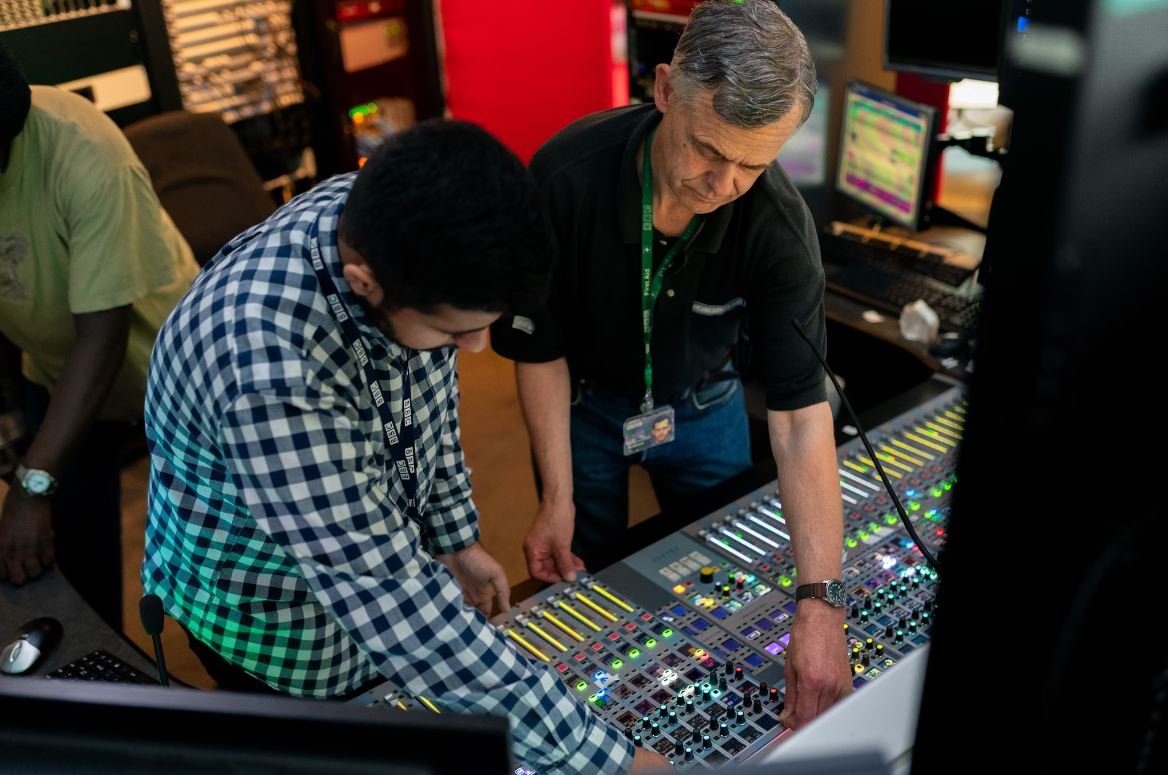AI Applications Used in Daily Life
Artificial Intelligence (AI) has become an integral part of our daily lives, transforming the way we live, work, and play. From voice assistants to virtual personal trainers, AI applications are now widely adopted in various aspects of our day-to-day activities.
Key Takeaways
- AI is used in voice assistants, virtual personal trainers, and smart home devices.
- AI enhances healthcare with diagnostics, drug discovery, and robotic surgery.
- AI powers autonomous vehicles and improves transportation efficiency.
In today’s age, AI is integrated into a wide range of applications. Voice assistants, such as **Amazon’s Alexa** and **Apple’s Siri**, are AI-powered applications that help us with tasks like setting reminders, answering questions, and controlling smart home devices with voice commands. With the ability to understand natural language and adapt to our preferences, these assistants have become an integral part of many households.
*Did you know that voice recognition accuracy has improved by leaps and bounds over the years, thanks to AI?
In the realm of personal health and fitness, **virtual personal trainers** are gaining popularity. These AI applications can provide tailored workout plans, track progress, and offer personalized coaching. By analyzing data from wearables and smartphones, AI trainers can adapt workouts based on individual performance and goals, making fitness routines more effective and enjoyable.
*Imagine having a personal trainer available to you 24/7, regardless of your location or budget.
AI has also made significant contributions to the healthcare industry. With the help of AI-powered algorithms, medical professionals can make more accurate diagnoses, detect diseases at an early stage, and identify potential treatments. Additionally, AI is being utilized in drug discovery, accelerating the process of finding new medicines. Robots equipped with AI technology are even assisting surgeons in performing complex operations with precision and efficiency.
| AI in Healthcare | Applications |
|---|---|
| Diagnostics | Improved accuracy in disease detection. |
| Drug Discovery | Efficient identification of potential medications. |
| Robotic Surgery | Precision and efficiency in surgical procedures. |
*AI not only assists healthcare professionals but also expands their capabilities and improves patient outcomes.
In the field of transportation, AI plays a crucial role in the development of autonomous vehicles. With advanced sensors, machine learning algorithms, and real-time data analysis, self-driving cars are becoming a reality. AI enables these vehicles to perceive their surroundings, make decisions, and navigate complex road situations with a high level of safety and efficiency. Moreover, AI is being utilized to optimize traffic flow, reducing congestion and improving transportation systems.
*Imagine a future where commuting becomes stress-free and accidents are significantly reduced.
AI in Transportation
- Autonomous vehicles
- Traffic optimization
- Efficient transportation systems
AI applications have undoubtedly made our lives easier, more convenient, and safer. As technology continues to advance, we can expect AI to be integrated into more aspects of our daily lives, revolutionizing the way we interact with the world.
Whether it’s through voice assistants, virtual personal trainers, or healthcare advancements, AI continues to shape our future. With ongoing research and innovation in this field, the possibilities are endless.

Common Misconceptions
Misconception 1: AI is only used in complex industries
One common misconception about AI applications used in daily life is that they are only present in complex industries such as finance or healthcare. However, AI technology has permeated numerous aspects of our daily lives, often without us even realizing it.
- AI-powered recommendation systems are present in popular streaming platforms like Netflix and Spotify, helping users discover new content.
- AI algorithms are used in social media platforms to curate personalized feeds and suggest content based on individual preferences.
- Voice assistants like Siri, Alexa, and Google Assistant utilize AI to understand and respond to user commands.
Misconception 2: AI will take over human jobs
Another common misconception is the fear that AI applications will replace human workers entirely, leaving many unemployed. While AI does automate certain tasks, it also creates new employment opportunities and enhances human productivity.
- AI enables the automation of repetitive and mundane tasks, freeing up human workers to focus on more complex and creative work.
- New job roles are emerging in the field of AI, such as AI trainers, explainability experts, and ethical AI specialists.
- AI can provide decision support and augment human abilities, leading to improved efficiency and productivity in various industries.
Misconception 3: AI always gets it right
Many people assume that AI is always accurate and infallible, but the reality is that AI can make mistakes just like humans. AI is only as good as the data it is trained on and the algorithms it utilizes.
- AI algorithms can be biased due to the data they are trained on, which can lead to unfair outcomes or perpetuate existing societal biases.
- AI models can struggle with complex or ambiguous situations that require contextual understanding, making errors in their decision-making process.
- AI systems can be vulnerable to adversarial attacks, where malicious actors manipulate data to deceive the AI into making incorrect predictions or decisions.
Misconception 4: AI is always a black box
There is a misconception that AI systems are always opaque and incomprehensible, making it impossible to understand why they make certain decisions. While some AI models may indeed be complex and difficult to interpret, efforts are being made to address this issue.
- Explainable AI (XAI) is a field of research that aims to make AI models more transparent and understandable to humans.
- Techniques like model-agnostic explanations and attention mechanisms help identify the reasoning behind AI predictions or decisions.
- Regulatory frameworks, such as the European Union’s General Data Protection Regulation (GDPR), enforce the “right to explanation,” requiring AI systems to provide understandable explanations for automated decisions that affect individuals.
Misconception 5: AI will surpass human intelligence
There is a tendency to exaggerate the capabilities of AI and assume that it will eventually surpass human intelligence. While AI has made remarkable advancements, it still has limitations and is fundamentally different from human intelligence.
- AI lacks common sense reasoning and contextual understanding that humans possess.
- Human intelligence encompasses emotional intelligence, creativity, and complex social interactions, which AI systems currently cannot fully replicate.
- The development of artificial general intelligence (AGI), equivalent to human intelligence across multiple domains, remains a long-term and challenging goal in AI research.

AI Applications in Food Delivery
As technology advances, AI has found its way into the food delivery industry. The following table highlights the impact of AI on food delivery services.
| Aspect | AI Applications | Benefits |
|---|---|---|
| Order Placement | Intelligent voice assistants for taking orders | Improved accuracy and efficiency |
| Delivery Optimization | Route planning algorithms | Reduced delivery time and fuel consumption |
| Customer Insights | Sentiment analysis of customer reviews | Enhanced understanding of customer preferences |
AI Applications in Healthcare
The healthcare sector has experienced significant transformation due to the integration of AI technologies. The table below showcases some of the notable applications of AI in healthcare.
| Domain | AI Applications | Benefits |
|---|---|---|
| Medical Diagnosis | Image recognition algorithms | Improved accuracy and early detection of diseases |
| Robot-Assisted Surgery | Autonomous surgical systems | Enhanced precision and reduced surgical errors |
| Drug Discovery | Machine learning algorithms for analyzing compounds | Accelerated development of new drugs |
AI Applications in Education
The utilization of AI in education has opened up new possibilities for personalized learning and educational support. Explore the diverse applications of AI in education in the table below.
| Area | AI Applications | Benefits |
|---|---|---|
| Adaptive Learning | Intelligent tutoring systems | Customized learning experiences for students |
| Automated Grading | AI-powered grading systems | Efficient assessment process for educators |
| Virtual Classrooms | AI-driven simulation tools | Engaging and immersive learning environments |
AI Applications in Retail
AI has revolutionized the retail industry, enabling personalized shopping experiences and improved efficiency. The table below outlines some of the notable AI applications in retail.
| Area | AI Applications | Benefits |
|---|---|---|
| Product Recommendations | AI algorithms for personalized suggestions | Increased customer satisfaction and sales |
| Inventory Management | AI-powered demand forecasting | Optimized inventory levels and reduced costs |
| Virtual Assistants | Chatbots for customer support | 24/7 customer assistance and improved response times |
AI Applications in Transportation
The transportation sector has harnessed the potential of AI to enhance various aspects of mobility. Discover the applications of AI in transportation in the following table.
| Area | AI Applications | Benefits |
|---|---|---|
| Autonomous Vehicles | Self-driving cars and trucks | Improved safety and reduced traffic congestion |
| Traffic Management | Real-time traffic prediction models | Efficient route planning and reduced travel times |
| Ride-Sharing Optimization | Matching algorithms for efficient carpooling | Reduced costs and environmental impact |
AI Applications in Financial Services
The financial industry has embraced AI to enhance decision-making processes and provide better customer experiences. Explore the AI applications in financial services below.
| Area | AI Applications | Benefits |
|---|---|---|
| Fraud Detection | Machine learning algorithms for anomaly detection | Improved detection and prevention of fraudulent activities |
| Automated Trading | AI-powered trading algorithms | Enhanced speed and accuracy in financial markets |
| Customer Service | Chatbots for quick support and query resolution | Enhanced customer experience and reduced response times |
AI Applications in Entertainment
In the entertainment industry, AI has unlocked new opportunities for content creation, immersive experiences, and recommendation systems. See the table below for key AI applications in entertainment.
| Domain | AI Applications | Benefits |
|---|---|---|
| Content Generation | AI algorithms for automated content creation | Efficient production and diverse content offerings |
| Virtual Reality | AI-driven simulations and virtual experiences | Immersive entertainment experiences for users |
| Recommendation Systems | AI-powered content suggestions | Enhanced personalized recommendations for users |
AI Applications in Agriculture
The agriculture sector has embraced AI to improve crop yields, optimize resource utilization, and address sustainability challenges. Learn about AI applications in agriculture through the following table.
| Domain | AI Applications | Benefits |
|---|---|---|
| Crop Monitoring | Remote sensing and drone-based imagery analysis | Early detection of crop diseases and optimized yield prediction |
| Precision Farming | AI-powered irrigation and fertilization systems | Optimized resource usage and reduced environmental impact |
| Pest Management | AI algorithms for pest identification and control | Improved pest detection and targeted intervention |
AI Applications in Smart Homes
Smart homes have become increasingly common, thanks to AI-driven automation and connectivity. The table below highlights AI applications in smart homes.
| Aspect | AI Applications | Benefits |
|---|---|---|
| Home Security | AI-powered surveillance cameras and facial recognition | Enhanced home security and threat detection |
| Energy Management | Intelligent energy consumption monitoring | Efficient energy usage and cost savings |
| Voice Assistants | Speech recognition systems for smart home control | Convenient and hands-free home automation |
AI applications have permeated various aspects of our daily lives, bringing forth numerous benefits and innovative solutions. Whether it’s improving food delivery, revolutionizing healthcare diagnostics, or transforming entertainment experiences, AI continues to shape the world we live in. With ongoing advancements, the integration of AI technology is expected to further expand and impact our society, making this technology an essential part of our future.
Frequently Asked Questions
AI Applications Used in Daily Life
1. What are some common AI applications used in daily life?
Common AI applications used in daily life include virtual assistants (e.g. Siri, Cortana, Alexa), personalized recommendations (e.g. on streaming platforms and online shopping), spam filters, voice recognition systems, and image recognition technologies.
2. How does AI assist in virtual assistants like Siri and Alexa?
AI assists in virtual assistants by understanding users’ commands and processing natural language queries, providing accurate responses, performing tasks or searches on behalf of the users, and learning from user interactions to improve future responses.
3. What are some AI applications in healthcare?
AI applications in healthcare include medical diagnostics, predicting patient outcomes, drug discovery, personalized medicine, and robotic surgery assistance.
4. How is AI used in personalized recommendations?
AI is used in personalized recommendations by analyzing user data, preferences, and behavior to suggest relevant content, products, or services. This is commonly seen in recommendation systems on streaming platforms like Netflix and in personalized product suggestions on e-commerce websites.
5. What role does AI play in spam filters?
AI plays a crucial role in spam filters by automatically analyzing incoming messages and identifying patterns or characteristics associated with spam. It helps in filtering out unwanted or malicious emails, providing users with a cleaner inbox.
6. How do voice recognition systems work?
Voice recognition systems use AI algorithms to convert spoken language into written text or commands. They analyze speech patterns, pronunciation, and context to accurately transcribe or interpret spoken words, enabling voice control in various applications and devices.
7. What are some real-world examples of image recognition technologies?
Real-world examples of image recognition technologies include facial recognition systems for biometric identification, optical character recognition (OCR) for text extraction from images, image search engines, and automated surveillance systems that detect objects or analyze visual data.
8. How does AI contribute to transportation systems?
AI contributes to transportation systems by enabling autonomous vehicles, optimizing traffic flow and route planning, predicting maintenance needs, and enhancing public transport management. It can analyze vast amounts of data to improve safety, efficiency, and sustainability in transportation.
9. What are some AI applications in banking and finance?
AI applications in banking and finance include fraud detection, credit scoring, algorithmic trading, customer service chatbots, and personalized financial recommendations or advice based on individual financial data and goals.
10. How can AI improve the shopping experience?
AI can improve the shopping experience by providing personalized product recommendations, virtual try-on tools for fashion items, chatbots for instant customer support, visual search capabilities, and smart shopping assistants that compare prices or find the best deals.





